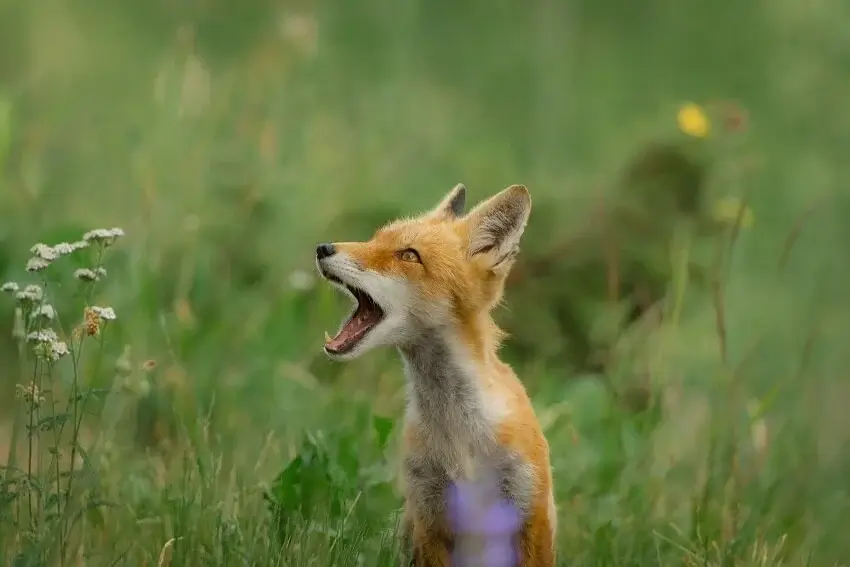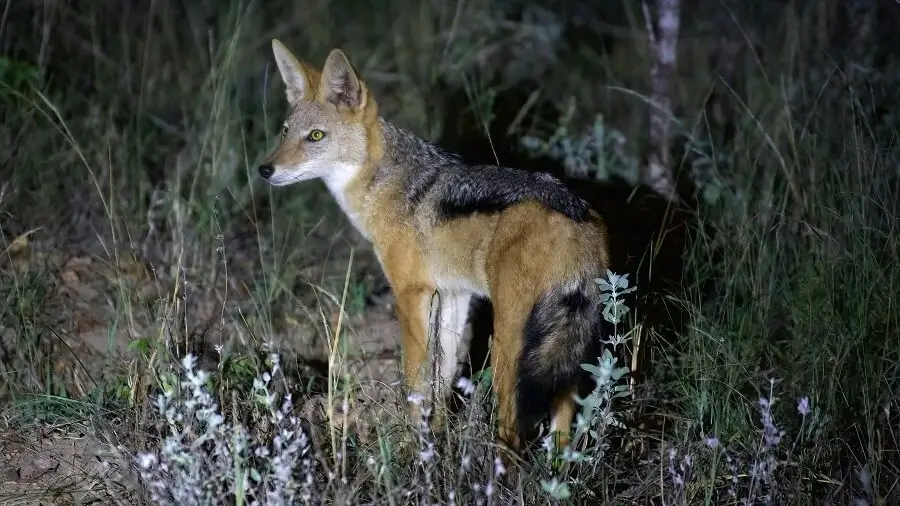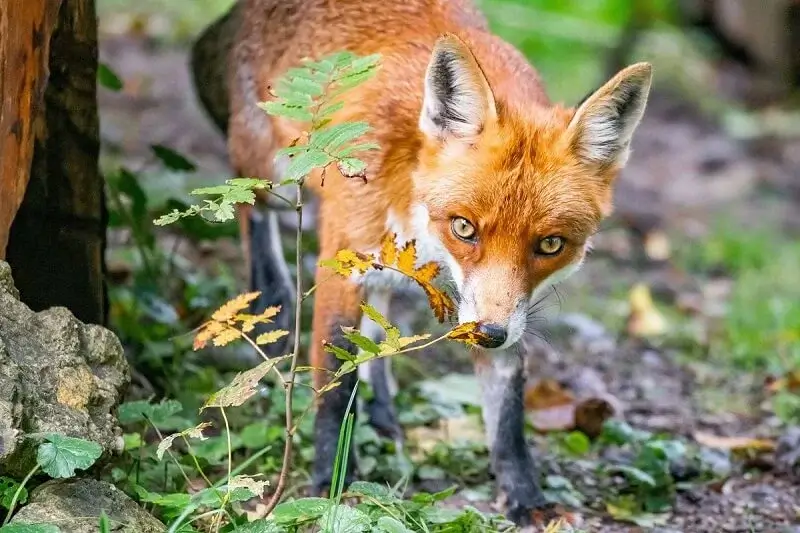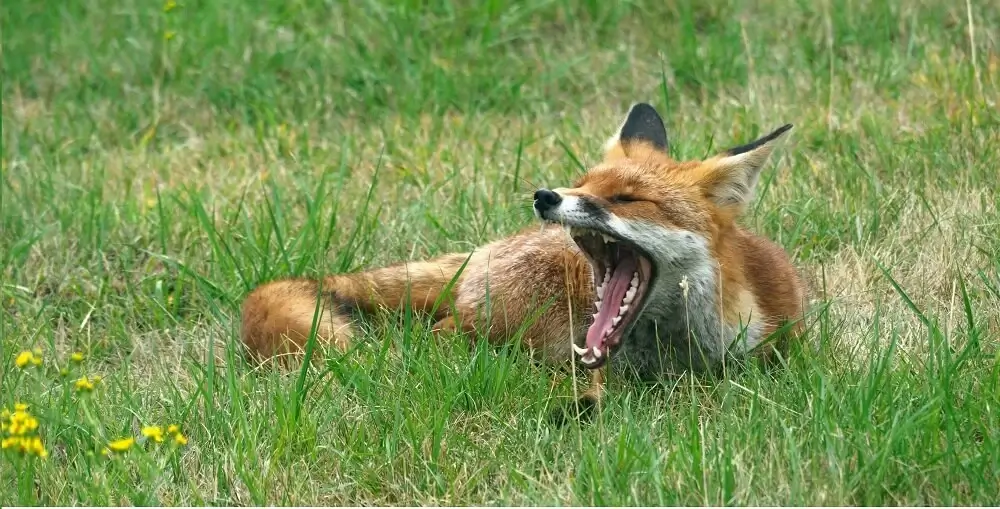Have you ever heard a shrill, eerie screech that pierce the silence of the night? It can be a bone-chilling sound if you are out after dark. This chilling sound is most likely the foxes screech or scream of nearby foxes. Although fox vocalizations range from barks to howls, but nothing sends a shiver down the spine quite like a foxes screech.
Additionally, Foxes screech and screams to communicate various messages. They screech to defend their territories, gather mates at night and react to injuries. Therefore, learning to understand these spine-tingling noises can shed light on why foxes scream at night.
Is it Normal for Foxes to Scream?
Yes, the wide range of sounds foxes make, from high-pitched whines to chilling screams, are perfectly normal and natural behaviors. These vocalizations serve important purposes in fox communication.
Additionally, the screaming sounds help foxes protect territories, find mates, and alert each other to danger across long distances. Unlike dogs that growl or bark, foxes evolved specialized screeches that their anatomy uniquely allows.
Reasons of Foxes Scream and Screech
Fox vocalizations can be categorized into various types like yips, growls, howls and more. But screeches stand out as one of the most urgent and unsettling sounds foxes make.

A fox unleashes its piercing scream for a number of reasons:
- Warning of danger or threats: Foxes will screech persistently to alert others to a predator or encroaching human. The painful scream serves as an alarm.
- Protecting territory from other foxes: Screeches help scare intruders away by signaling the territory is occupied. The more vicious the scream sounds, the more effective it is.
- Calling to fox pups: Adult foxes use a screech to gather wayward pups back to the den. This high-pitched call carries over long distances.
- Finding a mate: Male foxes scream during mating season to attract females. Paired foxes will also scream together to claim territory and strengthen bonds.
- Reacting to injuries or pain: A fox screeches loudly when hurt or wounded, signaling distress.
Hence, foxes screech at night to give alarming sounds to their cubs and other foxes as well in case of any danger.
Screaming vs. Other Fox Sounds
While screams are very common fox noises, they have distinct differences from other fox vocalizations:
- foxes Scream are high-pitched, loud squeals. Screeches are even higher-pitched.
- Barks sound like quick, abrupt coughing sounds. They serve as alarm calls.
- Growls signal aggression or act as warnings. They have a throaty, raspy sound.
- Howls are longer, wavering wails that communicate over long distances.
- Yips are a series of short, high-pitched barks often heard during mating season.

So, fox Screeches alarming nearby others about the potential danger, while howls call over long range partners. On the other side, Barks and growls serve as more aggressive warnings.
Fox Screeching at Night
Have you been jolted awake by a screeching fox in the middle of the night? There are some common reasons foxes unleash those eerie screams at night:
- Responding to other foxes encroaching on their territory
- Calling out to potential mates
- Communicating with fox pups at the den
- Reacting to threats like coyotes, dogs, or humans
Since foxes are nocturnal hunters, they tend to be most active at night. Screeching serves as one form of nighttime communication between foxes as they hunt and move through their territories.
What Sounds Do Foxes Make at Night?
Foxes employ a wide repertoire of vocalizations at night when they are most active. Here are some of the sounds you may hear after dark:
- High-pitched screeching or screaming, often to warn of danger
- Yip howls as fox groups communicate over long distance
- Solitary howls to call to potential mates
- Alarm barks that warn of encroaching threats
- Growls and aggressive screeches to ward off intruders
Moreover, Foxes make their loudest, most urgent noises at night to connect with mates and defend territories during prime activity times. Their vocalizations in the darkness carry an eerie quality.
What Sounds Do Red Foxes Make?
Red foxes use a similar array of vocalizations as other fox species, with some unique qualities. These high-pitched sounds are most common:

- Screeches that range from X to X kHz
- Short, repetitive barks that serve as alarm calls
- Yips, particularly during mating season
- Wailing howls sometimes described as “vixen’s wail”
Red fox vocalizations carry farther than those of other foxes. Their barks are raspy, and screams shrill, even compared to other foxes. These noises amplify at night when red foxes are most active.
Conclusion
A fox’s eerie scream may make your hair stand on end, but it’s simply the fox communicating normal messages like claiming territory or finding a mate. Learning to identify the varied vocalizations of foxes provides insight into their behaviors and purpose behind each unique sound. So next time you hear that late night cry, listen closely—it could reveal hidden details about the nighttime lives of your local foxes!


Leave a Reply